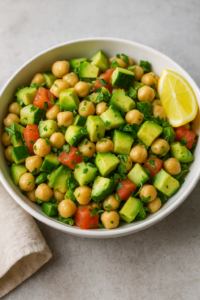
Nutritional Support for Kidneys: Foods and Nutrients for Optimal Kidney Health
The kidneys play a crucial role in filtering waste, balancing fluids, and regulating blood pressure, making them vital for overall health. Diet is one of the most powerful ways to support kidney health and protect against kidney disease, high blood pressure, diabetes, and other conditions that can put strain on these essential organs.
In this article, we’ll explore the best foods, nutrients, and dietary practices for optimal kidney function, whether you’re looking to prevent kidney issues or support existing kidney health.
Understanding Kidney Health and Nutritional Needs
The kidneys filter about 200 quarts of blood daily, removing toxins, regulating minerals, and maintaining fluid balance. However, kidney function can be compromised by high blood pressure, diabetes, dehydration, and diets high in salt, sugar, and unhealthy fats. The right foods and nutrients can help maintain healthy kidney function and prevent kidney strain.
Top Nutrients for Kidney Health
- Potassium: While potassium is vital for the heart and muscles, people with compromised kidney function often need to monitor their intake because the kidneys regulate potassium levels. For those with healthy kidneys, foods rich in potassium—such as avocados, bananas, and sweet potatoes—can help maintain fluid balance and support muscle function. However, anyone with kidney disease should consult a healthcare provider before increasing potassium intake.
- Antioxidants: Antioxidants combat oxidative stress and reduce inflammation, both of which benefit kidney health. Key antioxidants for kidney support include vitamins C and E, which can be found in foods like berries, bell peppers, and leafy greens. These antioxidants protect kidney cells from damage and can help reduce the risk of kidney disease.
- Omega-3 Fatty Acids: Found in fatty fish (like salmon and mackerel), flaxseeds, and chia seeds, omega-3 fatty acids reduce inflammation throughout the body, including the kidneys. Omega-3s also support heart health, which is closely connected to kidney health, as high blood pressure can strain the kidneys.
- Fiber: Dietary fiber helps regulate blood sugar levels, which is important for kidney health as high blood sugar can damage kidney function. Fiber also supports digestion and detoxification, indirectly easing the workload on the kidneys. Foods like whole grains, oats, fruits, and vegetables are great sources of fiber.
- Magnesium: Magnesium helps regulate blood pressure and relaxes blood vessels, which can reduce kidney strain. Leafy greens, nuts, seeds, and legumes are excellent sources of magnesium. However, be mindful of phosphorus-rich nuts and seeds if you have existing kidney issues.
Kidney-Friendly Foods to Incorporate in Your Diet
A diet rich in certain fruits, vegetables, and lean proteins can provide essential nutrients to support kidney health. Here are some of the best choices:
- Berries: Blueberries, strawberries, and raspberries are high in antioxidants, vitamins, and fiber, making them excellent for kidney health. Their low potassium content makes them safe for most kidney diets, especially if you need to limit potassium intake.
- Red Bell Peppers: Low in potassium and packed with vitamin C and antioxidants, red bell peppers support kidney health and immune function. They’re also versatile and can be used in various dishes.
- Garlic and Onions: Both garlic and onions are anti-inflammatory, and they add flavor to meals without relying on salt, which can strain kidneys. Garlic is also beneficial for blood pressure, which supports overall kidney function.
- Cauliflower: High in fiber, low in potassium, and loaded with vitamins C and K, cauliflower is an excellent kidney-friendly vegetable that also provides detoxifying compounds to support kidney health.
- Cabbage: Cabbage is low in potassium, rich in fiber, and contains phytochemicals that help reduce kidney-damaging oxidative stress.
- Apples: High in fiber and anti-inflammatory compounds, apples help regulate blood sugar levels, which is essential for kidney function. Their fiber content supports digestion, indirectly benefiting kidney health.
- Olive Oil: Olive oil contains healthy fats and anti-inflammatory compounds. Using olive oil instead of butter or margarine can reduce saturated fat intake, which is beneficial for both heart and kidney health.
- Egg Whites: High in protein but low in phosphorus, egg whites are a good choice for those needing to monitor phosphorus intake. They provide the necessary amino acids without stressing the kidneys.
Foods to Avoid for Better Kidney Health
To reduce the workload on the kidneys and minimize strain, it’s best to limit certain foods that can cause complications over time:
- High-Sodium Foods: Too much salt can cause fluid retention, increasing blood pressure and putting strain on the kidneys. Avoid processed foods, salty snacks, and canned goods with added salt.
- Sugary Foods and Beverages: Excessive sugar intake can lead to high blood sugar levels, which over time can damage the kidneys. Limit sugary drinks, candies, baked goods, and other high-sugar items.
- High-Phosphorus Foods: People with kidney disease often need to monitor phosphorus intake because damaged kidneys can’t effectively eliminate it. Limit dairy products, sodas, and certain nuts and seeds.
- Red Meat and Processed Meats: High-protein diets can be hard on the kidneys, especially for those already at risk. Red meat and processed meats are particularly taxing, as they’re high in phosphorus, saturated fats, and sodium.
- Artificial Sweeteners: Certain artificial sweeteners can strain kidney function. If you have concerns, opt for natural sweeteners like stevia or small amounts of honey.
Lifestyle Tips for Enhanced Kidney Health
In addition to dietary choices, lifestyle practices can greatly impact kidney health:
- Stay Hydrated: Drinking enough water daily is essential for kidney function, as it helps flush out toxins. Aim for at least 8 glasses of water a day, adjusting as needed for activity level and climate.
- Exercise Regularly: Physical activity helps maintain healthy blood pressure and blood sugar levels, which are critical for kidney health. Aim for 30 minutes of exercise most days, even if it’s a brisk walk or low-impact activity.
- Monitor Blood Pressure and Blood Sugar Levels: Keeping these levels within a healthy range reduces the risk of kidney disease. Work with your healthcare provider to manage and monitor them effectively.
- Avoid Smoking and Limit Alcohol: Smoking damages blood vessels, impacting circulation and kidney function. Limiting alcohol intake can also help, as alcohol is dehydrating and can put strain on the kidneys.
- Consider Regular Check-Ups: Routine kidney function tests can help catch any issues early. This is especially important if you have diabetes, high blood pressure, or a family history of kidney disease.
Final Thoughts
Good nutrition is one of the best ways to support kidney health and prevent strain on these vital organs. A diet rich in antioxidants, anti-inflammatory foods, and healthy fats can strengthen your kidneys, while limiting sodium, sugar, and processed foods can help prevent kidney stress.
If you have existing kidney issues, always consult with a healthcare provider or dietitian before making significant dietary changes. Supporting your kidneys with the right nutrients and habits is a powerful step toward long-term health and vitality.



 Protected by Patchstack
Protected by Patchstack